Ever stepped into your house and wondered, “Why does it smell like sewage?” It’s definitely not a warm welcome, right? But don’t worry, I’m there to handle this stinky situation!
I can justify the reason behind why your house or bathroom smells like a sewer, what causes it, and how to get rid of it.
Whether it is because of a broken pipe or a dried p-trap, I’ve got the solution for every problem to solve quickly.
So, are you tired of holding your nose whenever you enter the house, let’s work together to change that sewer smell for good!
Is Sewage Smell in Your House Hazard?
Yes! Believe it or not, the sewage smell in your house can carry serious risks. Here’s why you should be concerned:

1. Environmental Impact
Sewage smell in the house not only affects the quality of air but also poses environmental risks contributing to pollution and affecting nearby ecosystems.
2. Interference with Daily Activities
Sewage smell in the house may mess up your day-to-day activities and routines, and affect some parts of the house to spend time. This disrupts family life, meal times, and home enjoyment.
3. Affecting Social Gatherings
Having a sewage smell in your house makes guests or social gatherings uncomfortable and stops them from visiting leading to strained relationships.
4. Sleep Disturbances
Stinking smell in your house may disturb your sleeping patterns. Poor sleep will affect physical and mental health, increase stress, weaken the immune system, and impair thinking.
5. Indoor Air Quality
The sewage smell in the house shows a sign that the quality of the air is bad, breathing for a long time leads to health issues like respiratory infections, allergies, and other problems.
What are the common causes for the Sewage Smell In house
Do you feel sometimes why your house smells like sewage? Let’s explore what are the common causes of this weird smell in the house!
1. Sewage Smell From Shower Drain
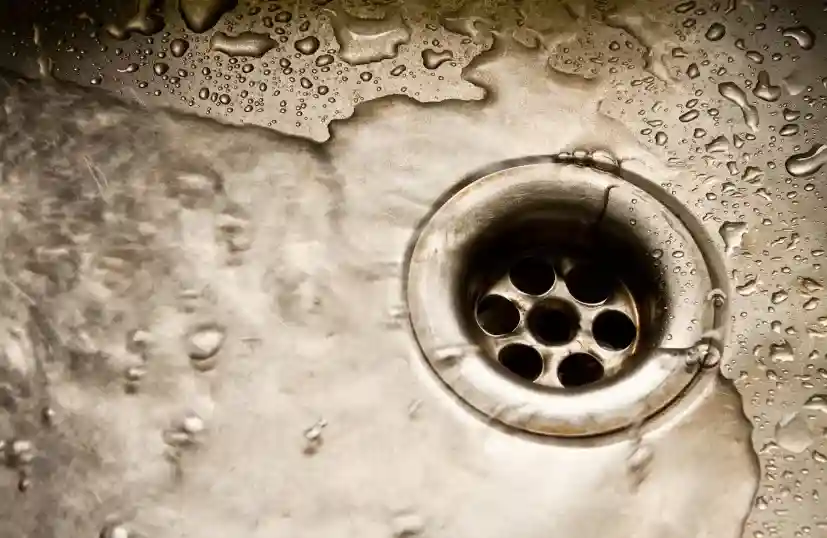
If you notice a sewage smell in your house, it’s not only from the toilet. One of the common sources could be a shower drain in your bathroom.
This smell from your shower drain might be possible due to various issues within your house.
These include biofilm accumulation, a clogged drain, a problem with your P-trap, or leaking pipes.
2. Blocked Vent Pipes
These pipes are important for venting sewer gases outside your home.
A blockage can cause these gases to flow reverse which enter your house instead of leaving outside.
Common blockages include bird nests, leaves, and other debris.
3. Cracks in Sewer Lines
Small cracks in your sewer lines can be a direct path for sewer gas to enter your living spaces. The aging of pipes can cause cracks in sewer lines.
4. Sewage smell from Toilet
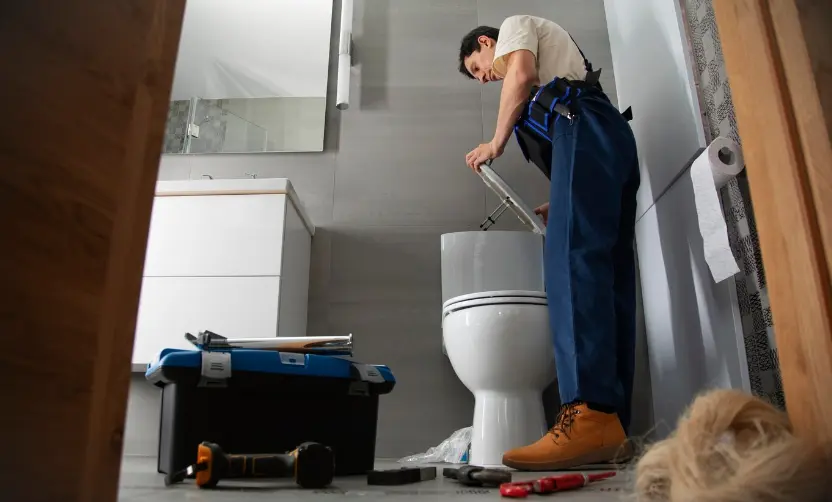
If your bathroom is smelling like sewage this may enter your house and can mess with your daily routine check whether the reason is with your toilet or bathroom.
Cleaning and using air fresheners can help you to sort temporarily, but the persistent smell could lead to major plumbing issues.
The possible causes may include improper installation of vent pipes, Broken or loose seals around the toilet, and septic tank blockage.
5. Sewage Line Blockage
A blockage in the main sewage line can lead to foul odors entering your home.
This blockage may occur due to tree roots in the pipe, sediment buildup, or even structural damage to the sewer line.
6. Sewage Smell From Dehydrated Floor Drains
Floor drains are commonly located in basements and garages can get dried due to hot weather or when they are not used on a regular basis.
When there is no water to seal them sewage smell can make a path to enter your living space. This can be seen more in dry climates.
It’s very important to check frequently and add water as needed for the prevention of sewage smell.
7. Improper installation of P-traps or S-traps
P-traps or S-traps are seen under your kitchen or bathroom sinks and have a unique function to stop sewer smells from entering your home.
They hold water to create a seal that blocks sewer gases. If water gets evaporated the trap leaks or the seal breaks leading to odors.
It is very important to keep an eye on keeping your home smelling fresh and clean.
8. Sewage smell from the cleanout
Cleanouts are usually located in front of the house, inside or on the floor, under kitchen sinks, and in the laundry area. They are sealed to keep weird smells from entering your house.
They don’t have traps like other pipes but they only have a seal made of rubber or Teflon which requires replacement if a sewage smell is detected.
Regular maintenance helps your home to be free from unpleasant odors.
9. Sewage smell from water
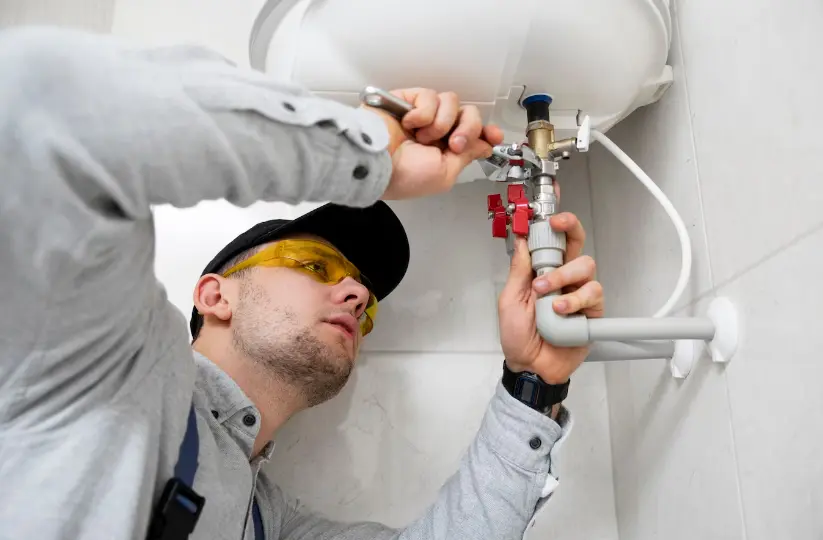
If you notice a rotten egg smell when you are using a tap for household chores there might be a problem with your water due to a clogged drain.
This smell may disturb your living space. If the smell is only from hot water while taking your shower it is likely from your water heater due to bacterial growth in pipes.
If smell is present in both hot and cold water the reason is the presence of hydrogen sulfide in water it should be tested immediately for any contaminants to create a fresh home environment.
10. Sewage smell from the Laundry area
If your house smells like sewage immediately we think in our mind is the bathroom but there may be a chance another reason is from your washing machine in the laundry area.
A clog in the drain pipe can cause a foul odor from the washing machine due to bacterial growth.
They need vent pipes like bathroom to stop sewer smell from entering your living area.
How To Prevent Sewage Smell From House
Addressing the main reason for the sewage smell in your house is the first step to preventing it.
Once you are done with that step there are some things which you can follow to keep your living space fresh and clean.
For complete removal of sewage odor from your home follow these simple tips, Are you ready? Let’s get start

1. Make Room For Fresh Air
Open all the windows and doors in your house for letting fresh air to remove foul odors.
Ensure small openings to freshen the air in your home naturally with the help of charcoal and camphor.
Place charcoal and camphor in bowls and place them in different places in your home as they absorb sewage odors and help to circulate fresh air.
2. Install Proper Drain Covers
Think once if you use drain covers at showers, tubs, and sinks to help you stop blockages and smells from entering your home.
These act as a net for catching hair, bits of soap, and other things to avoid clogs in the drain.
Regular maintenance will save you from plumbing issues and keep your home smelling fresh.
3. Seal Cracks in Pipes and foundation
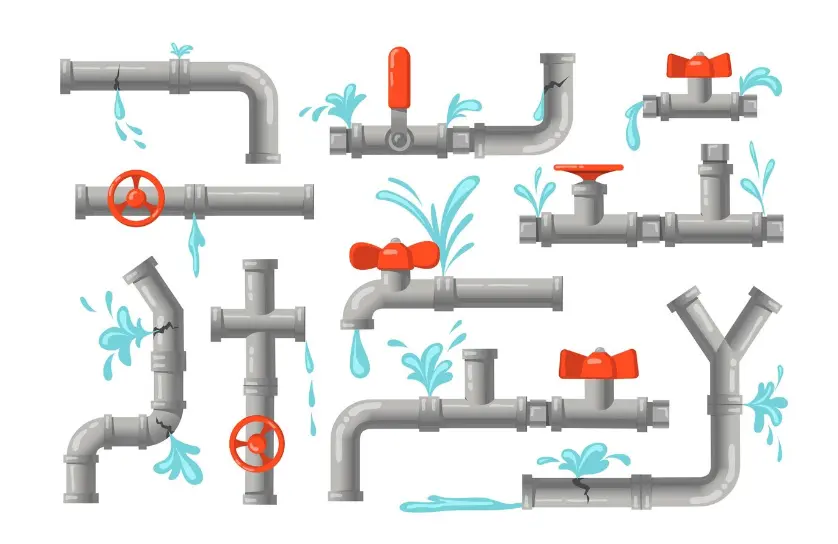
If you notice any cracks in pipes or foundations try to fix them to prevent sewage gas entering into the home.
Checking regularly and maintaining proper sealing will reduce plumbing issues and help in long-term protection against stinky smells and water damage.
4. Clean Floor Drains
Floor drains are not used regularly so there may be a chance of making a path for sewage smell to enter.
Cleaning floor drains regularly by flushing them with water and bleaching powder will kill bacteria, and viruses and prevent foul odors.
When using bleach keep in mind to have proper ventilation for avoiding fumes.
Regular maintenance will ensure a healthy living environment.
5. Remove Sewage Smell From the Carpet
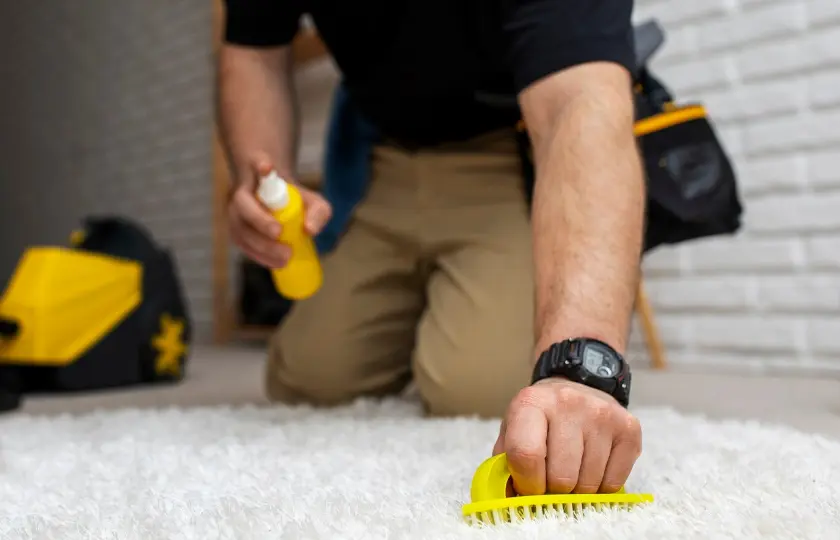
Are you feeling your carpets are smelling like sewage you can easily resolve that problem with this simple trick.
To remove the stinky smell from carpets just sprinkle some baking soda leave it overnight and rinse thoroughly in the morning.
This can make your home fresh and create a clean living space.
6. Investing in Water Softener
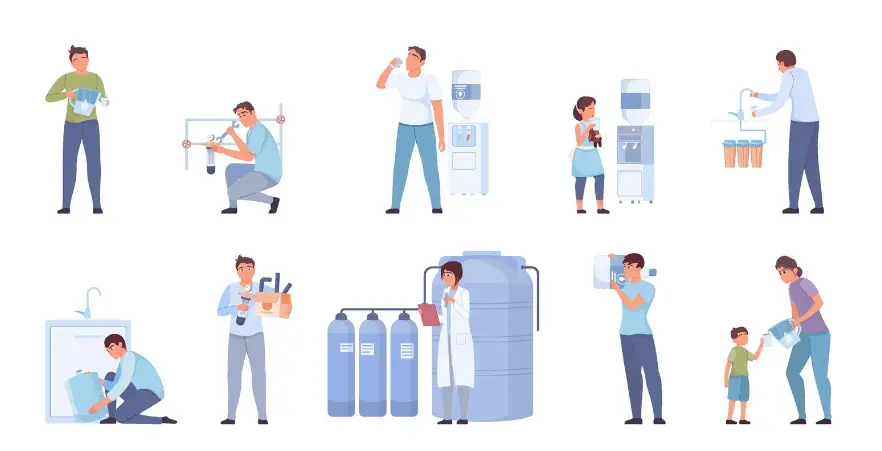
If you feel hard water is causing a sewage smell in your home go with installing a water softener.
This will not only save you from preventing clogs and mineral buildup but also reduce damage to your skin, hair, and utensils.
7. Avoid Chemical sewage cleaners
Using chemical cleaners will damage your pipes in the long run. Choose mechanical tools like plungers, and plumber’s snake to clear visible clogs.
Take expert help when you notice severe blockages.
Prefer mild cleaners to increase the life of your plumbing system.
8. Check the Roof vent
Check your roof vent regularly to avoid blockages caused by bird nests, dust, and leaves that will prevent airflow and lead to sewage gas backup.
Clearing and maintaining proper ventilation keeps odor-free living space.
Is Your House Smells Like Sewage: When to Go with Plumber Assistance?
Are you facing sewage smells in your house? Thinking about when to call a plumber? Don’t worry I’ll let you know when to take expert help.
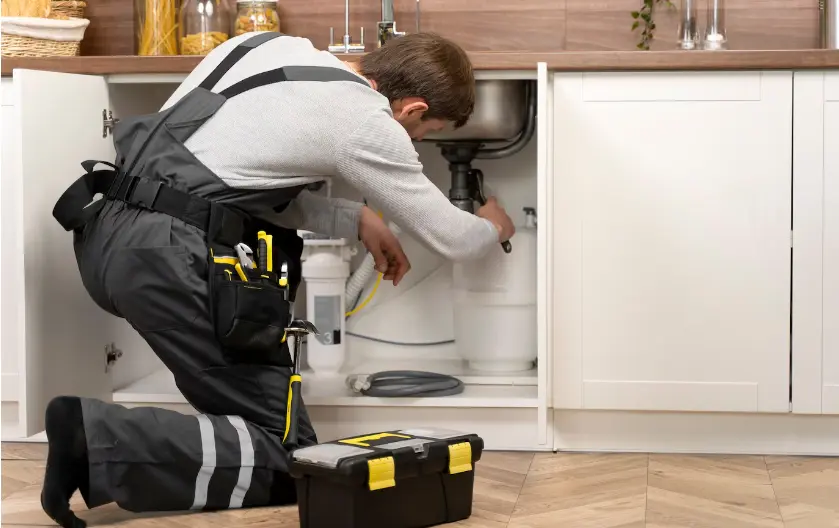
1. Addressing Sewage Smells
You may need professional help when you are unable to find out sewage odor issues at your home.
2. Identifying Sewer Backup
If you notice any sign like overflowing drains it indicates a major problem with your sewer line. So it’s time to call a plumber for immediate attention.
3. Broken or Collapsed Sewer lines
Older homes may face this problem due to damage in sewer lines if you notice any backup plumber assistance is needed to check the issue.
4. Freezing of Septic Tanks
Septic tanks become clogged and may freeze if not maintained properly due to that sewer backup may occur for this plumber action is required to sort the issue.
Conclusion
You should never neglect sewage smell in your house. Sometimes it may be due to issues like sewer gas leaks.
If you notice any sewer gas smell always take expert assistance before going with home remedies.
After checking and getting confirmation from the plumber which is not related to the plumbing issue you can easily handle odor independently with DIY solutions.
Suggested Read: How To Make Your Bathroom Smell Like A Spa: 20+ ‘Scent’-Sational Ways.
Frequently Asked Questions On Sewage Smell In House
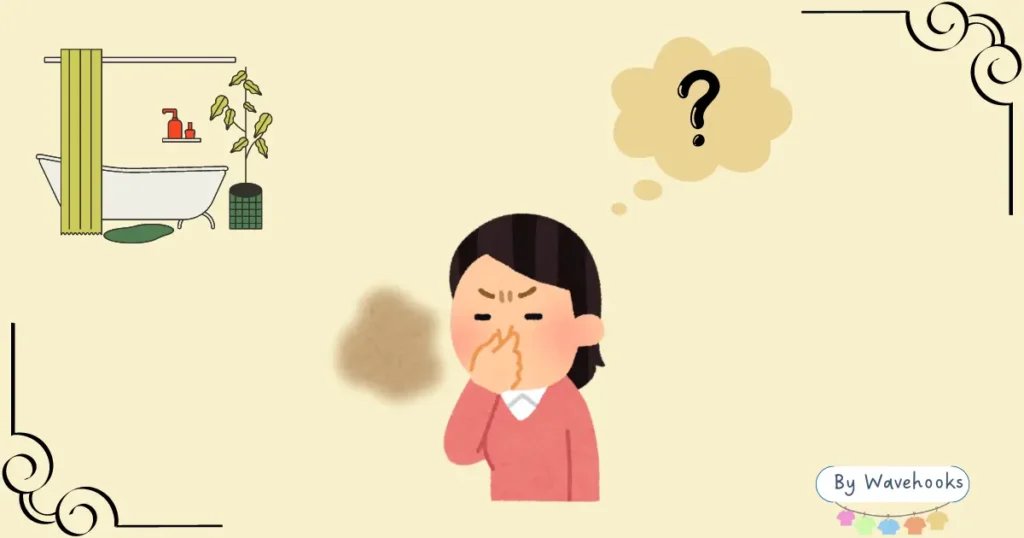
1. Is it advisable to leave your house if you detect the smell of sewer gas?
Yes, It’s advisable to leave your house if you detect the smell of sewer gas by opening windows and stepping outside to get some fresh air.
2. How do you test sewer gas in your house?
Use a sewer gas leak detector or call to plumber for a smoke test or to find the source of the leak.
3. Does the presence of Sewer gas cause an emergency?
Yes! The presence of sewer gas causes serious health problems like respiratory issues, allergies, and nausea. Immediate action is required for the well-being of occupants.
4. What are the possible signs of sewer gas exposure?
The possible signs of sewer gas exposure include headaches, dizziness, nausea, fatigue, and irritation of the eyes, nose, and throat.
Suggested Reads:








10 Comments